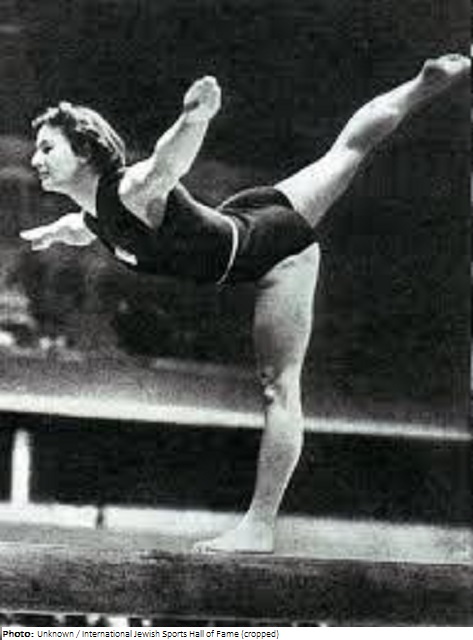Born in Baku, Azerbaijan to a Lithuanian family, Galina Urbanovich (née Khelle) was probably the best female gymnast of the world during the 1940s. But as her best years were during and closely after World War II, she did not achieve much international fame. Her only international competition was the 1952 Olympics in Helsinki, where despite being well past her prime at 34-years-old, and as the second oldest female competitor, she managed to win two team medals and finish in the top six in every individual competition except the uneven bars, where she was 12th. As a youth Urbanovich played volleyball and did not take up gymnastics until her family moved to Moscow in 1935. Soon she rose to be one of the top gymnasts of the country and later the world. Urbanovich was the Soviet individual all-around champion seven times (1943-48, 1950), won the rings title (her best discipline) seven times (1939, 1944, 1946 , 1948-50, 1952), uneven bars title five times (1944, 1946, 1948-50), pommelled horse title thrice (1943-1945), horse vault title twice (1943, 1948), balance beam title twice (1947, 1948), floor exercise title twice (1946, 1952) and the horizontal bar title in 1948. Urbanovich also won 19 silvers at the Soviet Championships (including three in individual all-around in 1949, 1951, 1953) and four bronzes (including in individual all-around in 1939). After finishing her sporting career in 1953, Urbanovich worked as a gymnastics coach for a short while, before graduating from university, afterwhich she worked as a laboratory assistant in the medical laboratory until her retirement in the early 1990s.

 Soviet Union
Soviet Union Russian Federation
Russian Federation URS
URS RUS
RUS